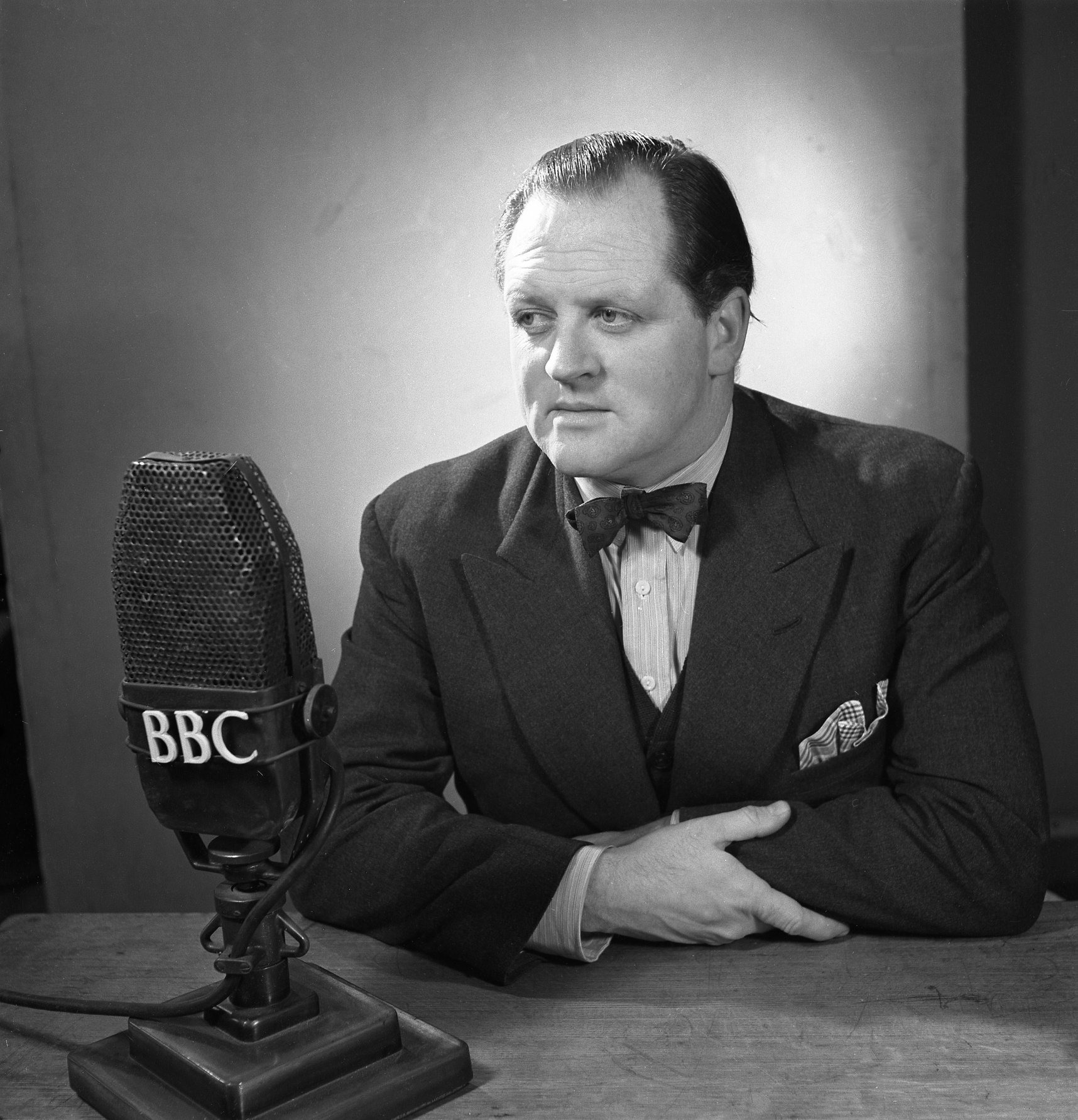He was born in Richmond, Surrey. He was the son of the journalist Frederick Jabez George Dimbleby. After his footsteps, in 1931 he started working in a journal Richmond and Twickenham Times, belonging to his family. He then worked in Southampton and, from 1936, at the BBC, as a radio reporter.
He gained his first experience at the state-run radio station during a royal tour of Canada in 1936. When World War II broke out, he became the institution’s first war correspondent. He accompanied British soldiers to France in 1940, as well as during the first battle of El Alamein in Egypt. In 1944, he returned to the front in Europe, accompanying Allied soldiers during the Normandy landings. As a war correspondent, he observed soldiers not only on the ground, but also in the air. He took part in more than twenty RAF Bomber Command raids, including the raids on Berlin.
Richard Dimbleby was a forerunner of war journalism. He recorded radio commentaries directly on the battlefields, including a raid in a de Havilland Mosquito aircraft and even a diving suit.
In 1945, he accompanied the 11th Armored Division when the formation took part in the fighting in Normandy, then in Operation Market-Garden in the Netherlands and in the liberation of many towns in that country. Soldiers of this division also fought in Belgium, during the German offensive in the Ardennes. On March 28, 1945, the unit crossed the Rhine and entered Germany. Just over two weeks later, it liberated the Bergen-Belsen concentration camp. Richard Dimbleby, who was with the soldiers, made one of the first reports on this camp. His description was so accurate and drastic that the BBC initially refused to broadcast his testimony. The radio station’s management agreed only after Dimbleby threatened to resign. The report, which was broadcast on April 19, 1945, was slightly revised, with descriptions of the deceased removed, among other things.
(…) I found myself in a world of nightmare. I’ve seen many terrible things in the past five years, but nothing as terrible as in the barracks of Camp Belsen. The dead and dying lay side by side. In the gloom I passed over more and more corpses until I heard a voice that rose gently above the moans. I found the girl. She was a living skeleton, it was impossible to determine her age, because there was practically no hair on her head, her face resembled a sheet of yellow parchment with two eye holes (…) one of the women, in despair, threw herself at a British soldier who was on guard duty (…) she begged him to give her some milk for the tiny baby she was holding in her arms (…) and when the soldier began to uncover the bundle to see the baby, he found that it had been dead for days.
After the war, Richard Dimbleby moved to television. He took part in many of the most memorable events in British history. He died at the age of 52 after a severe illness.
